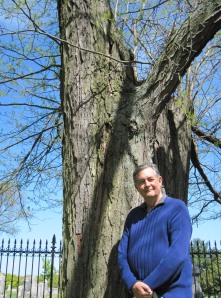“
“I rarely wear underwear,” said Disco Dave, lately of Miami, although the topic had not come up. He eased back in the big brown leather chair.
“Yes, we’ve heard, and we wish you wouldn’t do that,” Mo said, averting his eyes, “because it ruins the ambience.”
“I never take an ambulance,” said Disco of the Big Silver Wavy Hair and linen beach shorts. He was either 55 or 80. No one is quite knew because is both fit and decrepit at the same time. It’s an optical illusion. “I always drive myself to the hospital, like last fall when one of my fingers was cut off during that knife fight.”
“Knife fight?”
“Yeah, when I was defending my date against a gang of Colombians that had attacked us before dinner.”
“Which one?” Mo asked while trying not to be interested because that was always a mistake with Disco. Mo did occasionally express curiosity as a way of setting up a joke. He was short and round and had the perfect non-committal George Burns face for straight lines. He also was well preserved and feisty, just as the cigars he favored. He appeared to be sort of Jewish though not anything variety as specific as Reformed or Orthodox or Hassid. He was more like a Maduro. Tightly wrapped with many layers.
The club was a blend of doctors, lawyers, financial wheelers, several retired KGB agents and several more aging Mossad operatives who had decided it was safer to retire in Wilmette than Jerusalem. It was a male environment.
Many of the club’s habitués were boldly, demandingly Jewish and spoke Hebrew there with as much flair as any language spoken in the joint of which there were at least four or five. Mo was mostly Mo-ish and unique unto himself.
“Doris,” said Disco, the Man of Tan.
“No,” said Mo who already realized that he had just taken the herd down a box canyon from which there was no escape. “I meant, which finger?”
“It was Doris AND her sister, Doreen, because I always like to have options,” Disco continued. He punctuated the moment with the Disco Dave horizontal arm locomotive pump action to indicate ultimate romantic success. “It actually was my entire right hand. Did a hell of job reattaching it. Was awake during the whole thing. Luckily, I can still bowl. In fact I bowled a 320 last week in Miami.”
We pause here to tell any women that might have stumbled into the joint that they should to take no solace or hope that a new century has had much positive effect on men. Men tell stories to each other about women and their success with women, though in Disco’s case, if he had experienced as much sex as he claimed, he would have been dead. Stone, cold dead.
We all knew that, and we even suspect that Disco knew we knew. Logic did not stop the stories. That narrative was a welded, permanent appendage of the cultural landscape, and appearances must be maintained. So an old man with good hair will still make the case insistently that he is sexually active, usually with young women. It could happen. We hold to that optimism.
But back to bowling with Disco.
“You can’t have a score higher than 300,” said Mo from behind the boulder in the box canyon.
“You can in Miami,” Disco continued as he wolfed down the Boston Market’s slice of Super Coconut Supreme Pie from the rolled up bag in which he usually carried most of his personal belongings. “Effingcolombians changed the rules. I got the pie from Peggy at the front desk at Baker’s Square. She wants me.”
Baker’s Square was across the street. Apparently every woman there wanted Disco Dave. Even the 90-year-old customers with walkers and oxygen masks snugged down over bright red lipstick. When it came to women, Disco was THE Man. He was desired passionately everywhere. Fort Lauderdale? Ditto. Miami? Don’t even ask. Disco Dave was the Flying Dutchman of Romance.
Every year like the swallows to Capistrano or the buzzards to Hinckley, he would return at Memorial Day. He drove a Hyundai from South Beach. “Chicks love it,” he often announced even if the cigar club lounge mostly was empty.
But North Shore women had standards. That was the theory. We believed there were still two or three females there who might have second thoughts.
“You can still bowl?” Mo asked.
“Yes, because I’m left handed. I take off the right hand if I don’t need to use it.”
“Let’s see you take it off,” Mo said.
“Can’t,” said Disco. “It leaks too much blood and makes me limp.”
“Limp?” said Mo. “How……” He tried to stop himself but it was too late.
“Because then I can’t do my Fontainebleau Hotel lounge act. Walking on my hands while I balance Gertrude on my butt while I spin her in the air at 845 rpms. You can’t see her. Just hear her whoosh as she goes by.”
“Gertrude?”
“She’s Brazilian. We’ve had a thing since 1987.”
“And you can’t walk on one hand anymore?”
“Oh sure I can, but it makes me sort of hop. And then Gertrude gets to bouncing. I don’t want her to go flying off my butt in the middle of the lead musical number.”
“Which is?”
“I Only Have Ice for You.”
“You mean Eyes?”
“No, the act is me opening a tray of ice with my teeth and mixing her a Long Island Ice Tea.”
“While she’s balanced on your…”
“Butt, that’s right.”
“And you now take off your right hand when you don’t need it?”
“Yes, sometimes I keep it right here in the bag.”
“Next to the pie?”
“Yes, and my dirty socks if it’s been a long night. Which it usually is, if you know what I mean.” Disco Dave was geared for the summer.
But when Labor Day arrived, he would board his trusty Hyundai steed and gallop for South Beach. He had vowed 15 years ago never to touch snow again or allow it to touch him.
Mo, who was 64 when he entered the lounge that day, now he figured he’d aged to about 71. They had not been productive years.
But he still had both of his hands. And he was wearing underwear. It had been a good day, after all.



